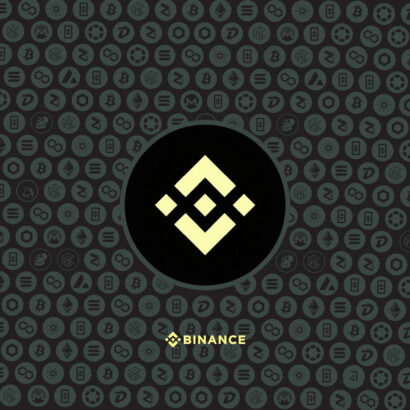Crypto Exchanges are like Traditional Financial Institutions and Trading Products.
Decentralized Exchanges are another story.
In this article we’ll walk through each type, looking at the pros and cons, benefits and a few things to watch out for.
Where does the money go when you buy crypto?
Imagine a traditional stock exchange like the NYSE.
You may recall the scene In The Dark Knight Rises (2012) when the villain Bane storms the building to steal from billionaire Bruce Wayne. The stock exchange is located in a building in the heart of Gotham City’s financial district, and it’s portrayed as a busy, chaotic area with tickers on every screen and traders running around on the floor.
Today, the exchanges retail investors access look nothing like these fictional representations.
People buy and trade stocks online through centralized banks and using apps and/or verified online investing accounts.
The same is true for centralized cryptocurrency exchanges.
You verify your identity so you can exchange your fiat for crypto.
These are fiat on-ramp exchanges.
In addition to the centralized ecosystem, there are also decentralized exchanges where your identity remains anonymous while you trade crypto for crypto.
Centralized crypto exchanges are convenient — they allow you to directly exchange your dollars (fiat) for cryptocurrencies.
Decentralized crypto exchanges don’t exchange dollars — they tend to focus on exchanging a variety of cryptocurrencies.
Of course there are other benefits, and each exchange may offer different cryptos and trading features. The best advice is to decide in advance what you want to do and find the exchange(s) that will accommodate this.
While there is a certain amount of trust and risk involved in keeping your money in fiat on-ramp exchanges, plenty of them do have security in place to ensure the safety of your cryptocurrency.
It’s in most people’s best interest to use the centralized exchange only to buy crypto, then move it into their private wallet(s).
Centralized Exchanges — Swap Fiat Dollars for Crypto
You might not be surprised that centralized exchanges require Know Your Customer (KYC) verification. Don’t be too concerned. Due to anti-money laundering laws (AML), any exchange or bank that deals with fiat currency requires KYC verification.
This is no different than setting up a bank account.
For many new investors, it feels strange and inconvenient to hand over so much personal information to a crypto exchange. But these centralized exchanges (custodial) are registered businesses, and they are subject to financial laws and regulations just like banks or insurance companies.
Rest assured, that most exchanges rely on their reputation, customer service and by ensuring the safety and privacy of their customers.
You can validate this easily enough by looking at their reviews on the Apple App Store or Google Play.
If you aren’t looking to buy or trade an obscure Altcoin, just stick with the big ones that have proven track records and millions of customers.
Top Crypto Exchanges include:
Coinbase, Binance, Crypto.com, Newton
A Custodial Exchange may have fewer cryptos available to purchase than Decentralized Exchanges (DEXs), they’ll all have the top ones.
All these exchanges offer the ability to set up recurring deposits and/or purchases of crypto. The benefit of doing something like this would be that it takes the emotion out of the decision to invest.
In other words it’s a way to Dollar-Cost Average instead of timing every buy against market performance.
Your Wallet is Custodial if it’s Hosted on a Centralized Exchange.
Once you’ve verified your identity and set up an account, all your assets (fiat and crypto) are stored or held on your Exchange. This is done in a custodial manner — you aren’t technically in control of it.
It’s held on your behalf the same way as your bank account and you essentially have the right to use it according to the terms and conditions. Technically this is not the same as ownership in crypto.
Quick breakdown: probably the most important aspect of owning crypto is understanding and controlling the private key. This “key” is a string of letters and numbers attached to your wallet that verifies who owns a specific asset.
Ownership simply means having the authority to send (aka spend) the digital asset.
All private crypto wallets have private keys.
So on an exchange, your crypto technically isn’t controlled or owned by you because the exchange that stores it on your behalf, also controls the private keys. In other words it’s a custodial arrangement that involves trust.
That is not to say that you can’t trust exchanges like Coinbase or Kraken, but the first version of this post also listed FTX as an example. They seemed trustworthy until all of the sudden it was the opposit. Same thing with Celsius.
Keep in mind that you can always self-custody your crypto. You aren’t forced to trust anyone. Many people would much rather have the control over their own assets and protect themselves against the unlikely worst case scenarios of an exchange going bankrupt and withholding customer deposits.
That said, the larger and well established crypto exchanges we’ve mentioned above have earned good reputations, and as a result, the risk is low if you decide to leave some of your crypto on them.
I still would not recommend leaving a lot of crypto on a central exchange, but some for trading is not unreasonable.
While there is some risk, it does make managing, staking, and securing your crypto simple. For one thing this is often the same place where you bought the coins in the first place so you wouldn’t need to move them around.
For larger amounts (you can decide what large means), it’s almost always recommended to transfer the funds into a personal and private wallet where you control the keys. However with ownership comes responsibility, and you are responsible for security.
Key Features of Custodial Exchanges
- Buy crypto with fiat
- Trade cryptocurrencies
- Set up recurring deposits
- Stake crypto and earn interest
- Take out loans
- Sell crypto back into fiat
Many of these companies now offer a “Pro” version of the exchange with advanced features that allow for limit buys and sells.
Finally, more and more centralized exchanges are realizing that users want to see their portfolio grow. Some of them provide the opportunity for you to add your crypto into a liquidity pool through staking, earning between 2 – 10% interest annually.
Crypto banks like BlockFi take this one step further, allowing you to even take out loans if you supply liquidity.
Earning Extra Benefits by Buying the Native Exchange Token
Many popular custodial exchanges have their own tokens and ecosystems that confer benefits to holders.
Binance is backed by its own blockchain which has smart contract capabilities. By buying the Binance token (BNB), users can trade it for other cryptocurrencies and receive a 25% discount on trading fees. Not to mention participate in the potential upside as the token appreciates.
Crypto.com is another popular exchange, known for the sheer amount of cryptocurrencies available through the platform. Owning their native CRO token allows users to receive high interest rates for staking, discounts on exchange fees, as well as perks based on how much CRO you own.
It also permits you to receive a Visa with crypto cashback and various benefits depending on CRO ownership.
Comparing Popular Exchanges
While a custodial lets you trade fiat for crypto, they often have higher fees for trading and buying crypto.
Let’s compare Coinbase, Binance, Crypto.com, and Gemini to see how they differ.
Coinbase is probably the most popular in the US. It has slightly higher trading fees (which you can lower with Coinbase Pro).
Binance offers the most Altcoins / trading pairs of our shortlist and they have the most benefits for holding their native token (BNB).
If you’re in Canada, we think Newton is likely to be your best bet.
| Category | Coinbase | Binance | Crypto.com | Gemini |
 |
 |
 |
 |
|
| Overall Rating | ★★★★☆ | ★★★☆☆ | ★★★★☆ | ★★★☆☆ |
| Funding Methods | Crypto
Debit card PayPal |
Crypto
Bank acct. Credit or debit card |
Crypto
Bank transfer Wire transfer |
Crypto
Bank transfer Debit |
| Number of Supported Cryptos | >50 | >500 | >100 | >50 |
| Staking | Yes | Yes | Yes | Yes |
| Trading Fees | 0.5% per trade
3.99% per credit card purchase 1.49% for bank account or wallet purchase |
0.1% without BNB
0.075% when trading BNB 3 – 4.5% for debit purchase |
0.4% flat fee | 0.5% + $0.99 to $2.99 |
| Withdrawal Methods | Crypto Wallet
Visa Bank Account |
Crypto Wallet
Bank Account |
Crypto Wallet
Bank Transfer Debit |
Crypto Wallet
Bank Transfer Debit |
| Do they have an Exchange Token? | None, but Coinbase is a publicly traded stock: COIN |
BNB, BUSD | CRO | GUSD (Stablecoin) |
This content is likely to change frequently — visit the official sites for the latest.
Decentralized Exchanges — Swap Crypto for Crypto
Once you’ve bought Ethereum or Bitcoin, and transferred it into your wallet, you’re set to explore Decentralized Exchanges (DEXs).
In a DEX, there is no KYC verification because fiat money isn’t being exchanged.
You are still required to report and pay taxes on crypto to crypto trades in most places.
A lot of DEXs provide Decentralized Finance (DeFi) products and solutions as well. These include the ability to earn interest through liquidity pools and by lending crypto.
DEXs are built on Smart Contracts, eliminating the need for an intermediary. There is no company or person in charge of a DEX because it is simply not needed. Instead, there is usually a dedicated team of developers and community members working behind the scenes.
Smart Contracts allow developers to create an algorithm that allows for secure trading. The best DEXs also have this code audited and vetted by a third party, to ensure that malicious hackers aren’t able to steal money through a loophole.
Smart Contracts combined with third-party auditing can make a DEX even more secure than a CEX. They can also be hacked or exploited.
There are many other advantages to a DEX — including more options for trading tokens, joining liquidity pools, and lending/borrowing crypto assets.
Non-custodial DeFi Services
When you’re using a DEX, you maintain the private keys for all your cryptocurrency. Non-custodial DEXs and wallets put you solely in control of your crypto assets, which could be a little scary or overwhelming.
But by following good security practices, this risk is very manageable and allows you to partake in the full suite of financial services offered by DEXs. Many private wallets now allow investors to directly exchange their crypto, however, they often have higher trading fees.
Features of DEXs
DEXs open up a whole new world of financial opportunities, once you get the hang of using them. Many of the popular DEXs are built using smart contracts on the Ethereum or Binance blockchains. In addition to letting you trade crypto for other crypto and altcoins, they all have their unique benefits.
Some DEXs specialize in creating lending and borrowing markets. In addition to swapping your crypto, you can use smart contract lending to earn a little interest in certain cryptos. Depositing into a lending smart contract also serves as collateral, allowing the depositor to borrow assets.
Other DEXs allow users to add their unused crypto into liquidity pools. This helps DEXs quickly swap different tokens, generating different amounts of daily accrued interest depending on supply and demand.
If I want to trade ETH for ADA, I don’t need to find the other person that wants to trade. Instead, a smart contract uses a liquidity pool to fill this order.
By entrusting your crypto into a liquidity pool smart contract, you are rewarded with a token that represents your contribution. This liquidity token can allow you to reap your rewards.
Earn Extra Benefits by Buying the DEX Native Token
Many popular DEXs also have their own tokens. On SushiSwap, the SUSHI token gives a user the ability to vote on new protocols and earn a cut of trading fees. Just like with a custodial token, it is important to understand whether there are significant advantages to owning these tokens. If you use a DEX regularly or you think that it will be the next big exchange in crypto, then it might be worth buying into its native token.
Note: Some crypto exchanges are technically brokerages, as they are the only ones setting the price they’ll buy or sell crypto for. You can fairly easily find derivatives and futures trading on some of these exchanges if you are comfortable with the risk/reward involved.
Using an Aggregator DEX to Find the Lowest Fees
1inch is an aggregator exchange app that makes it easy to find the lowest fees for specific trades and swaps. Rather than checking multiple different exchanges such as UniSwap and SushiSwap for the best rate, 1inch will do this for you. Aggregators are what can make DEX trading fees significantly cheaper than custodial.
Concerns and Best Practices for Using Exchanges
In general, crypto and blockchain assets carry some degree of risk.
It follows that there are specific risks and concerns when it comes to using different kinds of exchanges.
With a custodial, there is the risk of not having custody over your own Private Keys.
There can also be a lack of transparency within the custodial company. If you aren’t using a custodial exchange for staking crypto and you’re concerned about ownership of your crypto, it is wise to transfer the crypto to your own private self-custody wallet. This will ensure that only you hold the Private Keys to your digital assets.
Smart Contracts can be exploited by hackers.
However, using exchanges that vet and audit their Smart Contracts help you mitigate these risks. Additionally, there is the burden of keeping track of the different DEX services you might be using, as well as securing your own private wallets.
In general, a great custodial or DEX will have a lot of information available for users to read on their website. Reddit and Discord communities also provide important information regarding the products and the best ways to use them.
It is important to research the development team to ensure their legitimacy.
Best Crypto Exchanges for Trading
Trading is different than simply buying and storing crypto — which would be like a savings account. Using a trading account is for allocating and exchanging cryptos to build and manage a crypto portfolio.
Binance has the lowest fees and best advantages for owning its native cryptocurrency. It offers a large amount of altcoins and advanced features as well as rewards for owning certain crypto. However, it is not the most user-friendly interface for beginners.
Coinbase, Kraken, and Gemini are easier for beginners to navigate and they do a good job of onboarding new users.
Coinbase lets users earn a small amount of crypto for free through its Earn program while Gemini offers the ability for customers to earn interest by lending their crypto to institutional investors via a partnership with Genesis.
Note:
For the best rates on the DEX market, simply use an aggregator such as 1inch. It will scour different DEXs to help minimize your trading fees.
#1inch partners with @TrustWallet for the incredible swap competition 🏎️ “Need for Swap”!
💰 You could win cash prizes from a $25,000 $USDC pool!
The competition runs from Sep. 21, 16:00 (UTC) to Oct. 4, 16:00 (UTC).
✅ Find out more: https://t.co/rYJiTL0iQA#DeFi pic.twitter.com/cZSA8iVV3i
— 1inch Network (@1inch) September 21, 2023
Centralized and Decentralized Exchanges
There are two main types of cryptocurrency exchanges:
1
Centralized Exchanges (aka Custodial) are a type of financial service provided by a company under government regulation. They let you buy cryptocurrency with fiat and trade between cryptos.
They also let you sell your crypto back into fiat.
A Centralized Exchange is legally required to verify your identity.
A Centralized Exchange also provides a crypto wallet, where they control the Private Keys for all your crypto.
While many people are comfortable holding their assets on a Centralized Exchange due to ease and convenience, this bears an inherent risk.
Many of the top Crypto Exchanges have a good track record and plenty of satisfied customers. The risk of losing your crypto on a custodial Exchange is honestly very small but it’s still a risk.
Many Exchanges are also insured.
For full control and true ownership of your crypto, you would need to transfer your holdings to your own private crypto wallet (where you control the private keys). You will also assume all responsibility for security along with ownership.
2
A Decentralized Exchange (DEX) is decentralized and operates through algorithms called Smart Contracts.
They do not allow you to purchase crypto through fiat but offer you more crypto pairs for trading than a Centralized Exchange.
DEXs are non-custodial, meaning you retain the Private Keys and you own your crypto.
Using an aggregator app like 1inch can get the lowest trading fees across DEX markets.



